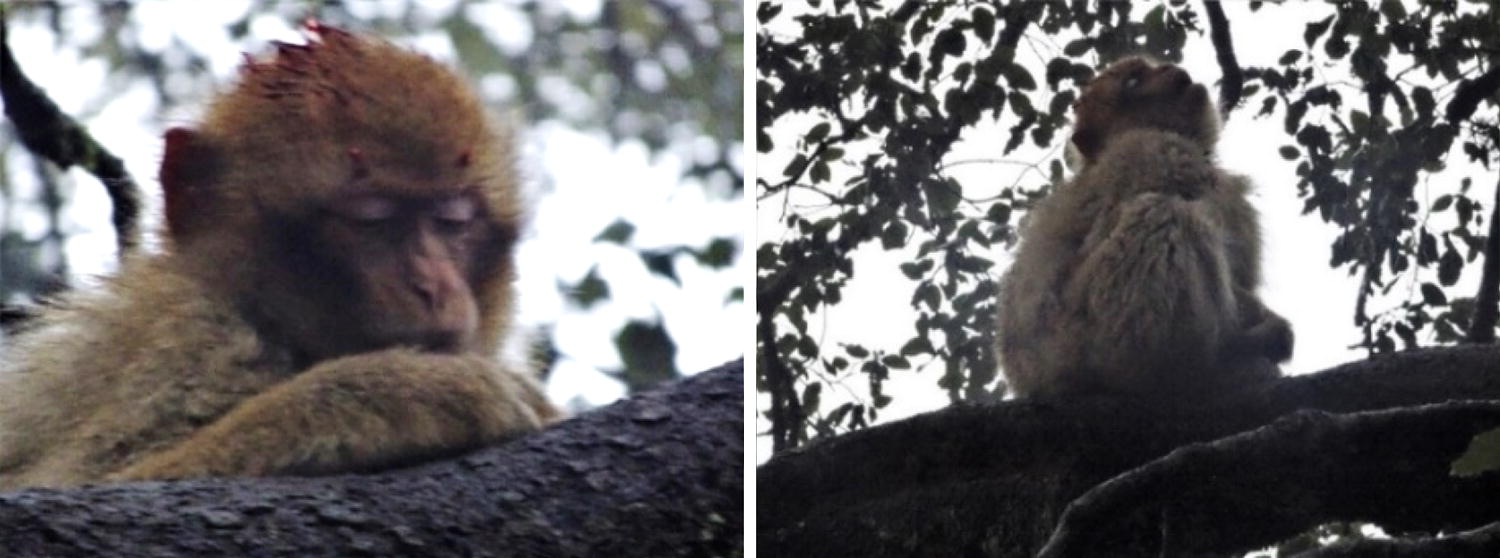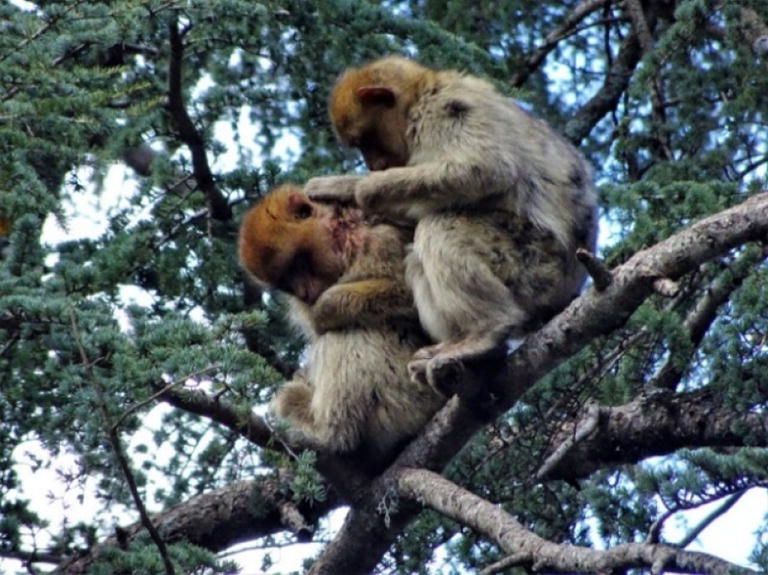After This Young Monkey Got Hit by a Car, Monkey Strangers Comforted Him

Even monkeys know it's right to care for strangers in need. (Or maybe their parents just didn't teach the helpers about "stranger danger.")
In a new paper published in the July issue of the journal Primates, scientists document for the first time Barbary macaques (Macaca sylvanus) fostering an older juvenile macaque — a stranger to them — after finding him lost and hurt on the side of the road days after he had been struck by a car inside a park in Morocco. The monkeys groomed and cared for the injured juvenile, named Pipo and almost 3 years old, and socialized with him until he was healed and ready to return to his own group.
The observation was surprising, study author Liz Campbell, a zoologist at the University of Oxford, wrote in the journal article, because "intergroup encounters at this [national park in Morocco] range from immediate withdrawal by one group to lengthy, sometimes aggressive, contests."
Researchers had never seen monkey strangers getting along like this before. [8 Human-Like Behaviors of Primates]
That was good news for Pipo. After a car struck him on March 20, 2018, Campbell wrote, he retreated to a nearby tree while other members of his home group looked on.
"Several group members displayed affiliation towards him, and a juvenile sat with him and groomed him as he appeared to be losing consciousness," she wrote. "At approximately 17:35 (1 hour before sunset), his group left for their sleeping trees, but Pipo was left behind in the tree."
The next day, Pipo was nowhere to be found, Campbell wrote, and she and her colleagues assumed he had died. But on March 22, she wrote, "he was found in the same tree, alone and screaming repeatedly. He later left the tree to feed on the ground but continued screaming intermittently, then returned to the trees."
Sign up for the Live Science daily newsletter now
Get the world’s most fascinating discoveries delivered straight to your inbox.

This seemed to attract the attention of another group of macaques.
"At 14:40, a neighbouring group (MonkeyWatch Group) arrived," Campbell wrote. "A juvenile approached Pipo, inspected his injuries, and groomed him. Approximately 20 min later, an adult male also approached and groomed Pipo. When MonkeyWatch Group left the area later in the day, Pipo left with them. He did not scream again after MonkeyWatch Group arrived."

Pipo ended up hanging out with the MonkeyWatch group for four months, long after his injuries appeared to have healed, according to Campbell. During that time, he was "fully integrated" into the new group's social structure and got along with them before eventually departing and returning to his home group.
This finding is also good news for Barbary macaques as a species, Campbell wrote. There are only about 10,000 individuals left in the wild, and their numbers have fallen significantly in recent years. Poaching is a significant problem, with monkeys removed from the wild and sold into the pet trade at 150% the rate the population could sustain, according to a 2008 study in the journal Traffic Bulletin.
Efforts to restore wild Barbary macaque populations rely on the hope that young poached macaques, often very young monkeys, can be returned to groups they weren't born into, where strangers can take care of them. (Adult males of this species especially love babies and often "sandwich" them in three-way male-baby-male group hugs, Campbell wrote.) But up until this point, researchers had assumed that only baby monkeys and very young juveniles were candidates for this sort of rehabilitation. Pipo's case suggests, Campbell wrote, that older juveniles might also be able to return to the wild to live with groups of strangers.
- Photos: Adorable and Amazing Guenon Monkey Faces
- Precious Primates: Images of Chimeric Monkeys
- Image Gallery: Sneezin' Snub-Nosed Monkeys
Originally published on Live Science.










